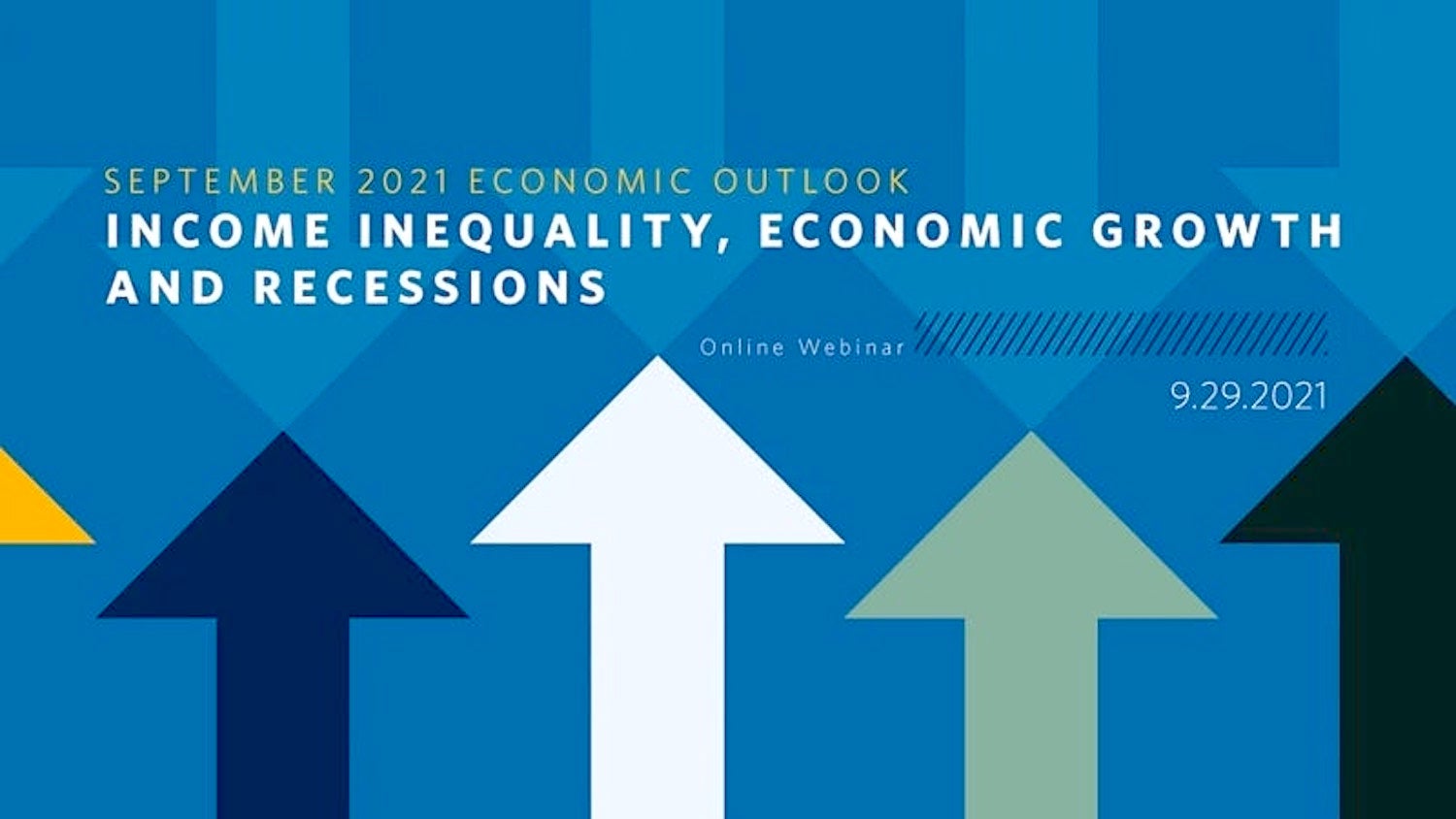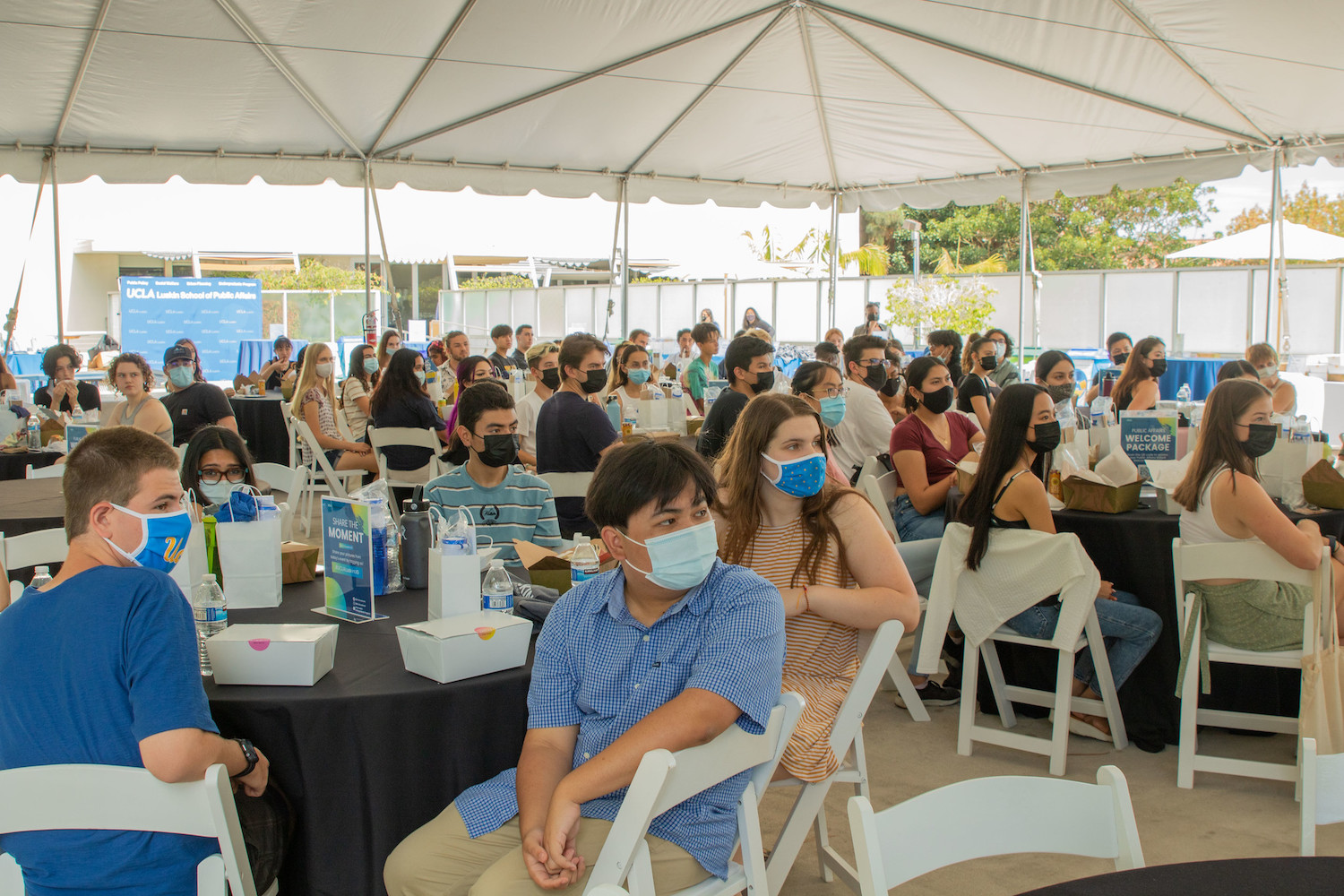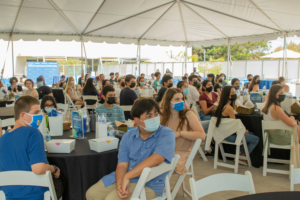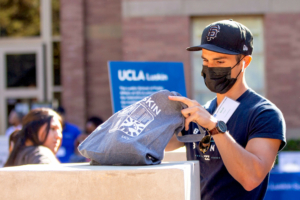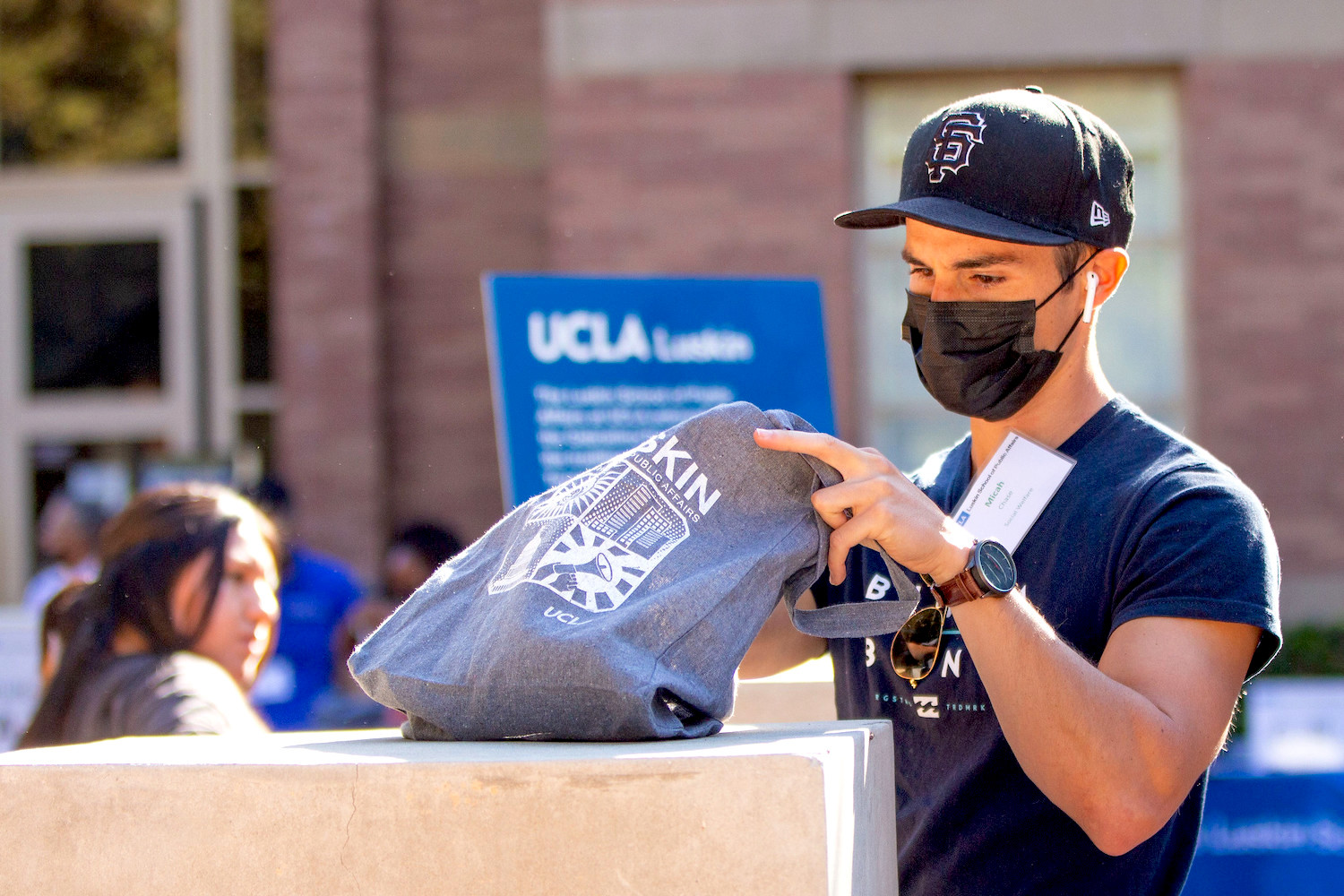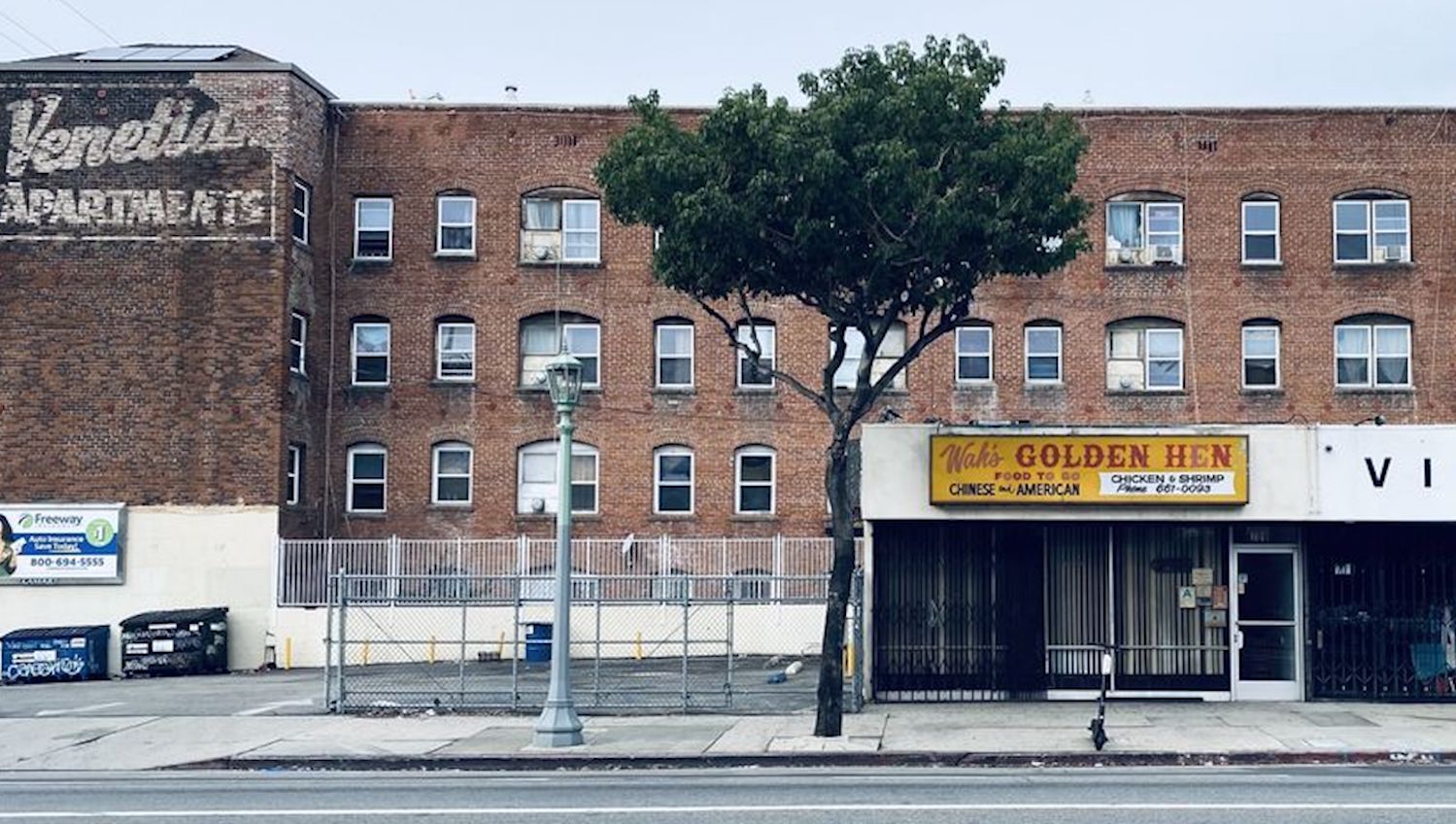Gilens, Ong on Forces Undermining a Just Economic Recovery
UCLA Luskin’s Martin Gilens and Paul Ong shared insights on economic and political inequality and opportunity as part of a panel organized by the UCLA Anderson Forecast, a quarterly report that frames the economic outlook for California and the nation. Released Sept. 29, the latest report identified a shift from earlier forecasts, which had raised hopes for a blockbuster recovery as COVID-19 vaccines became widely available. Heading into the final quarter of 2021, these hopes have been tempered by the spread of the Delta variant and stagnating vaccination rates, which in turn have led to consumer caution. A panel of experts hosted by the Anderson Forecast brought context to these findings, with a focus on how income is distributed unevenly across the United States. Gilens, chair of UCLA Luskin Public Policy, said political and economic inequality are intertwined, resulting in policies that cater to moneyed interests. “Taming the role of money in American politics won’t be easy, especially with an unsympathetic Supreme Court, and … won’t by itself fix everything that ails our democracy,” Gilens said. “But it’s hard to see how we can fix American democracy without reducing the dominance of money in our politics.” Ong, director of UCLA’s Center for Neighborhood Knowledge, focused on race and ethnicity as factors in the job, food, housing and educational insecurity that persists across generations. “I would encourage my colleagues to think much more explicitly about the fundamentals of why race and racism exist within an economy,” he said. “Simply saying that everybody should have equal opportunity doesn’t make it so.”
View the Anderson Forecast presentation, including a keynote address by Mary C. Daly, president of the Federal Reserve Bank of San Francisco.
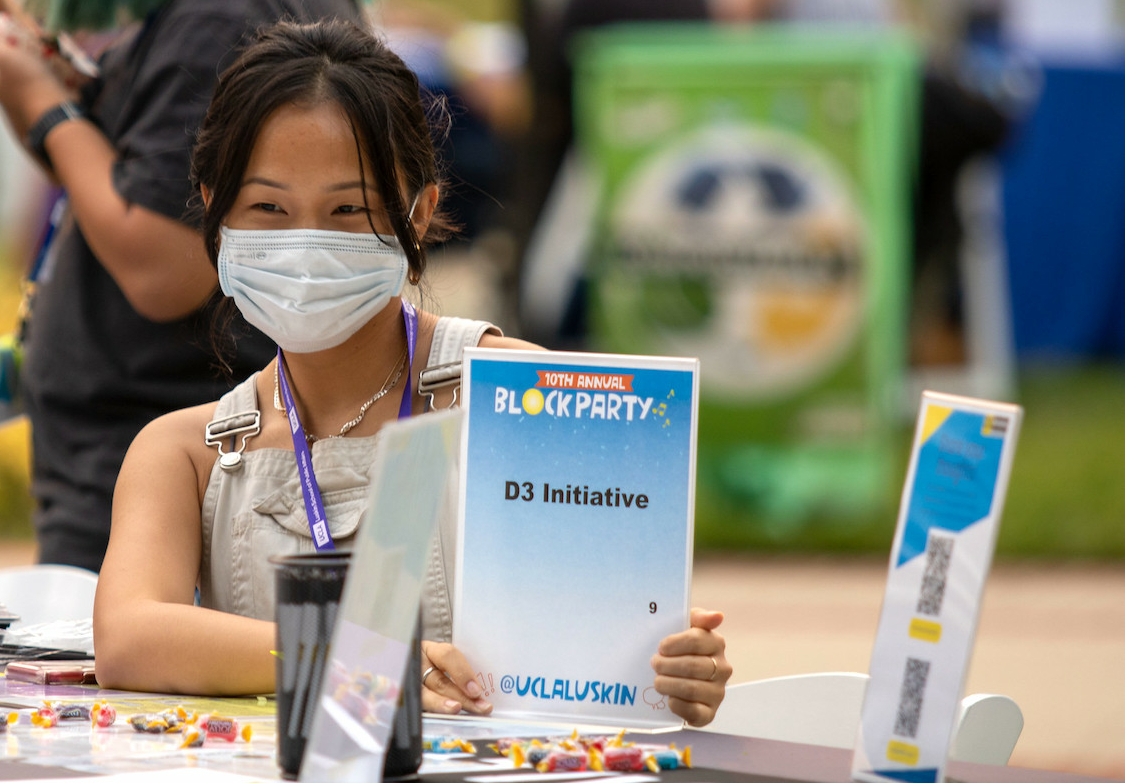
A Warm Welcome to UCLA Luskin
The Luskin School welcomed students and alumni back to campus with a series of celebrations and orientations to launch the new academic year. The 10th annual UCLA Luskin Block Party on Sept. 23 drew a record crowd as students, alumni, faculty, staff and supporters such as Meyer and Renee Luskin gathered on Dickson Court North to connect with one another after an 18-month stretch of remote learning brought on by the COVID-19 pandemic. Health protocols remained in force during Welcome Week, which included graduate student informational and networking sessions and an open house for undergraduates focusing on the public affairs major. The week wrapped up with an exclusive reception for Class of 2020 graduates in the School’s public policy, social welfare and urban planning programs.
View UCLA Luskin photo galleries from:
Pandemic’s Toll on Southern California’s Asian American-Owned Businesses
Because of the COVID-19 pandemic, a significant portion of Asian American-owned businesses in Southern California had, by April 2021, experienced financial losses, closures and staff reductions, and many of them struggled to access local, state or federal aid, according to a new UCLA policy brief. The brief is based on data from a survey conducted during the first four months of 2021 by the Asian Business Association of Los Angeles, whose findings were published by the Asian Business Center, the UCLA Center for Neighborhood Knowledge, directed by Research Professor Paul Ong, and the UCLA Asian American Studies Center, directed by Urban Planning Professor Karen Umemoto. Researchers asked 400 Asian American business owners in Southern California about the impact of the pandemic. Businesses represented a variety of industries, including manufacturing, retail, transportation, professional services, restaurants, services and health care. Roughly 60% of respondents reported a large negative effect from the pandemic. “While some companies were able to minimize their losses by pivoting to online sales, owners who are older reported that they struggled to make that transition,” Ong said. “On the other hand, younger business owners said they faced eligibility barriers when they tried to access recovery funds that would help their companies survive.” The policy brief recommends that policymakers simplify the financial relief application process and work with community organizations to provide additional technical assistance for business owners. Three out of four of the businesses surveyed were immigrant-owned, and nearly half were owned by women. People of Chinese, Filipino, Japanese, Korean and Vietnamese descent made up the largest portion of the survey. — Jessica Wolf
School Staff Crucial to Creating a Positive Campus Climate, Study Finds
A new paper co-authored by Social Welfare Professor Ron Avi Astor assesses the critical role of school staff members in creating a campus climate that fosters student development and achievement. The paper, just published in the Journal of Community Psychology, is a departure from previous research that focused on school climate from the student’s perspective. “School staff members have enormous social responsibility and great influence over students. Understanding their perceptions and beliefs about school climate is critical,” wrote Astor and co-authors Gordon P. Capp of Cal State Fullerton and Hadass Moore of Hebrew University of Jerusalem. To conduct the study, the researchers spent seven months interviewing teachers, secretaries, coaches, counselors, school social workers, principals and district-level personnel at two elementary schools and two high schools in Southern California. They also observed formal and informal staff interactions, classroom and recreational activities, and contacts with parents and other members of the community. The study underscored that the school principal’s vision and efforts to engage staff members are crucial in determining the campus culture. One surprising finding was that a school’s socioeconomic status was not a significant factor in staff discussions of school climate. The research also showed that school staff tend to prioritize the student experience over their own work life when assessing school climate. The authors concluded, “Findings from this study strongly suggest that the quality of climate rests with the staff, and without staff reporting a positive climate, how could there be a positive climate for students?”
Goh Explores Urban Climate Justice in New Book
A new book by Assistant Professor of Urban Planning Kian Goh explores the politics of urban climate change responses in different cities and the emergence of grassroots activism in resistance. “Form and Flow: The Spatial Politics of Urban Resilience and Climate Justice,” published today by MIT Press, traces the flow of ideas and influence in urban climate change plans in three key city centers — New York City; Jakarta, Indonesia; and Rotterdam, Netherlands. In the book, Goh analyzes major climate adaptation plans and projects such as Rebuild By Design in New York, the Giant Sea Wall masterplan in Jakarta and Rotterdam Climate Proof. Goh also discusses the rise of social movements and efforts among community organizations to reimagine their own futures in response to historical injustices and present-day challenges. Many groups of marginalized urban residents have pushed back against city plans and offered “counterplans” in protest against actions that they feel are unjust and exclusionary. Goh investigates how historically uneven development and global connections between cities have shaped the politics of climate urbanism, and her analysis provides insight on how to achieve a more just and resilient urban future. “Form and Flow” sheds light on the new wave of urban climate change interventions driven by environmental urgency, developmental pressures and global networks of expertise. Yale Professor Karen Seto called Goh’s book “a must-read for urban climate scholars and practitioners,” and Cambridge University Professor Matthew Gandy added that Goh’s “comparative global framework advances the field of political ecology in innovative directions.”
Keum Looks at Impact of Online Racism on Alcohol Use
A new study recently published in the American Journal of Orthopsychiatry was co-authored by Brian Keum, assistant professor of social welfare. It links online racism to unhealthy alcohol use as a stress-reduction coping strategy among racial minority adults. Keum was the principal investigator of the study, which examined alcohol use as a risky stress-reduction coping behavior associated with online racism, and whether there was any differentiation between men and women. “To our knowledge, this is the first study to examine the impact of online racism on alcohol use severity among racial minority adults,” said Keum, whose research focuses on reducing health and mental health disparities among marginalized individuals and communities. The report highlighted ways that online racism may be encountered, including personal encounters of racial cyber-aggression from others on the internet, vicarious witnessing of racial cyber-aggression among others and online exposure to racist incidents or racist realities in society. “These results suggest that online racism is likely a contemporary digital risk factor that may drive detrimental health behaviors such as alcohol use,” he said. In particular, women of color reported greater social media-related stress associated with online racism, which explained greater unhealthy alcohol use. This was not found for men. “This may be reflective of the greater stressfulness of the compounded nature of oppression that racial minority women may experience in the online space compared to racial minority men,” Keum said. Most previous studies focused on cyberbullying of children and teenagers, not the digital burden faced by racial minority adults.
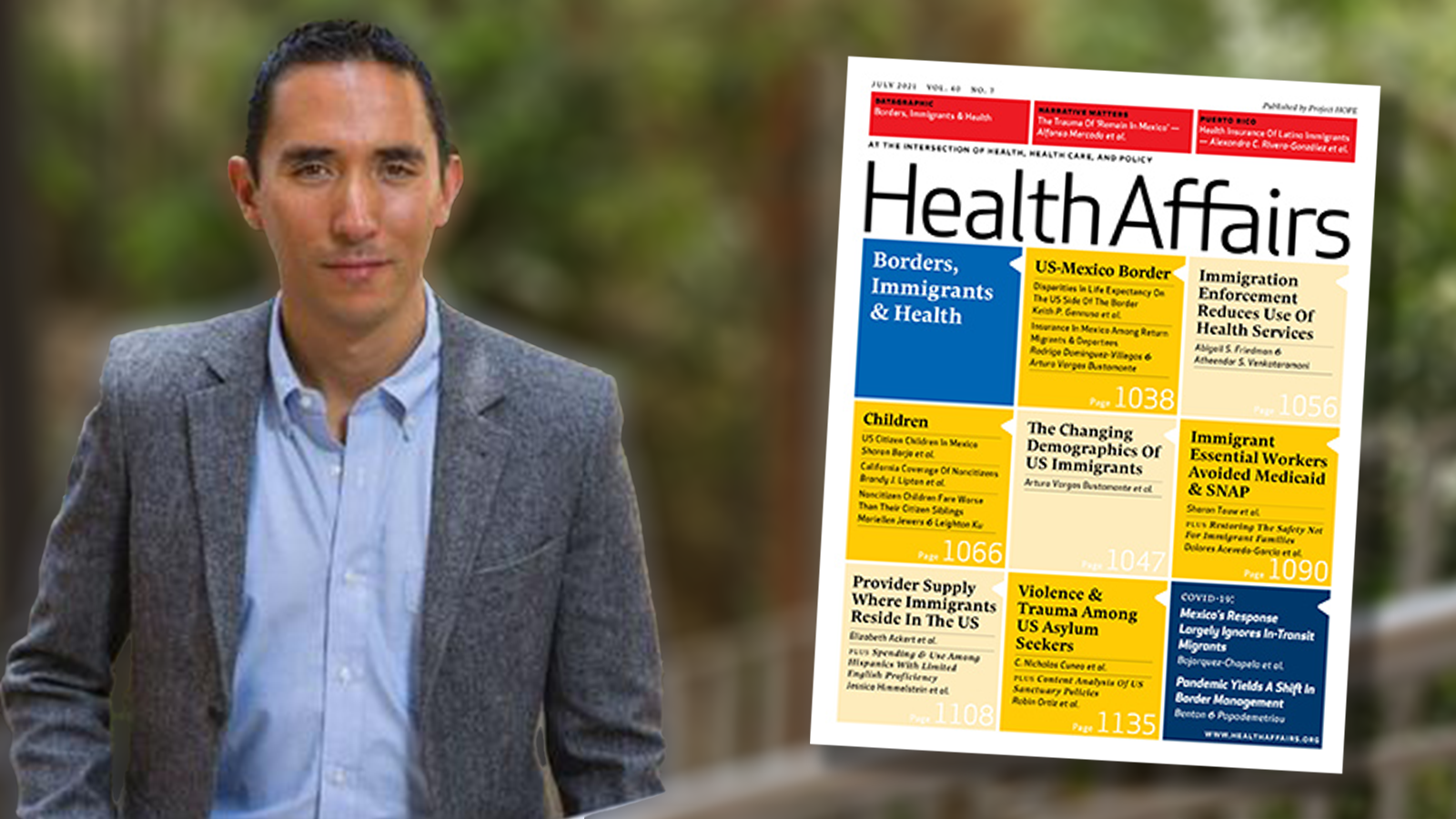
LPPI Scholar Curates Special Issue of Health Affairs Journal
Health Affairs, a leading journal of health policy research, devoted its July edition to health issues relating to immigration along the southern border of the United States, with Arturo Vargas Bustamante of the UCLA Latino Policy and Politics Initiative (LPPI) serving as editorial advisor. He curated more than a dozen research studies that provide an in-depth understanding of the effects of U.S. immigration policy on the care, coverage and health outcomes for immigrants. The journal also published two research studies from Bustamante, the faculty director of research at LPPI and a professor of health policy and management at the UCLA Fielding School of Public Health. One study found that better access to insurance for aging immigrants would improve their health care and reduce emergency room costs for both immigrants and U.S. taxpayers. Another study, by Bustamante and LPPI Director of Research Rodrigo Dominguez-Villegas, focused on the health of immigrants repatriating to Mexico from the United States. Vargas Bustamante also took part in a Health Affairs podcast and a panel discussion with other featured authors from the issue. For those working at LPPI, the special issue represents a sign that public opinion may be shifting on immigration issues, particularly regarding the contributions made by Latino immigrants to America’s social and economic fabric. Such a narrative shift would be a particularly welcome change in the wake of the COVID-19 pandemic, which further highlighted systemic inequities relating to U.S. health care for Latinos and other persons of color.
